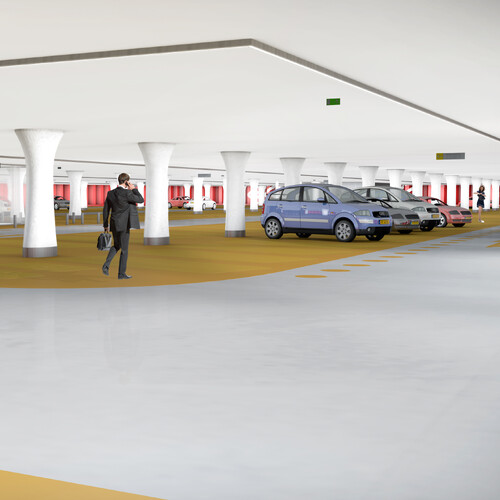12.10.2016
The Wintrack high voltage pylons have won the Dutch Steel Prize 2016 in the category industry. The steel Wintrack pylon, first introduced for the Randstad380 project, is designed by ZJA in close cooperation with DNV-GL and commissioned by TenneT. The new pylons use a very different visual language than the old steel lattice constructions. Thanks to their contemporary and restrained shape and color, they are less disruptive to the Dutch landscape and living environment. Furthermore, they have a 60% reduced electromagnetic field in comparison with the conventional lattice masts.
Slender pylons with a reduced magnetic field
The Wintrack consists of two pylons, on which the high voltage wires are suspended. The slender, tapered pylons appear to be unrelated. They are minimalist in design and so easily blend into different landscapes. Moreover, the pylon is low in maintenance thanks to its smooth composition. “Designing the Wintrack was all about minimalizing the pylon's impact“, says architect Rein Jansma. “ Due to it’s rounded, slender and tapered shape it is unpretentious by nature. Yet, the integral design and repetition strives for order in the landscape.”
The Wintrack consists of two pairs of pylons, hence the term "bi-pole", in which the wires (conductors) between the posts are assembled above each other. The pylons don’t have wide extensions from which the conductors are suspended close to each other, as is the case with the current lattice masts. The distance between the high-voltage wires is less than is the case with the existing masts. This results in a much smaller magnetic field along the route of the high-voltage pylons.
Jury
The jury about the Wintrack: The Wintrack is a jewel within its typology and all the objections of its predecessors, which for over a century have spoiled our landscape, are well thought through. The round steel pylon is less dominant and should be seen as an asset for the public domain and a prime example of product development. Research into the dynamic behavior has led to a slight adjustment of the suspension, resolving old vibration issues. The architect adhered to its aesthetic principles, and that shows. A well deserved winner.
The winner of the Dutch Steel Prize, a biennial award in various categories for inspiring applications of steel in construction, was announced during the Dutch Steel Construction Day in Amsterdam.
Photograph: TenneT
